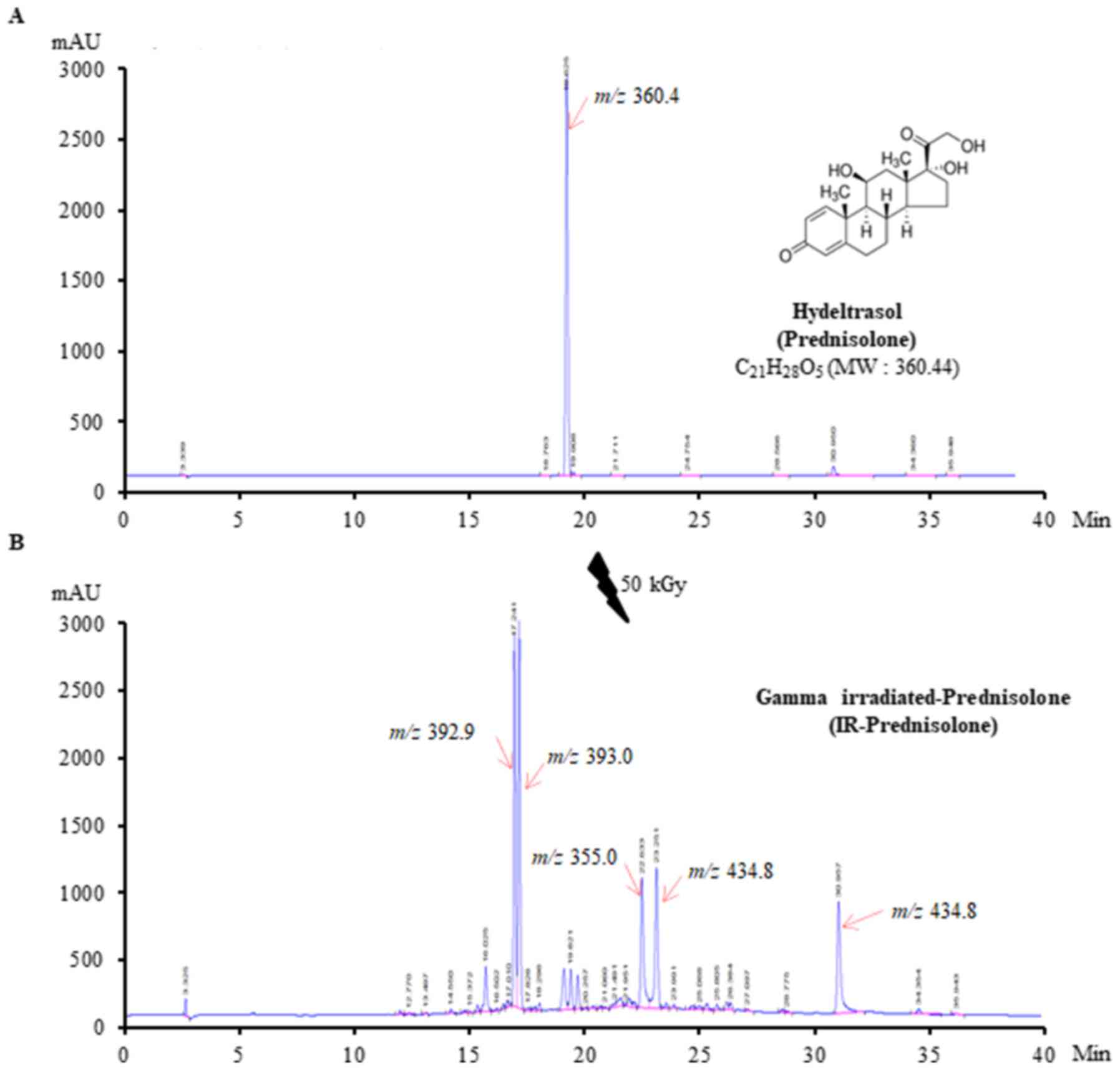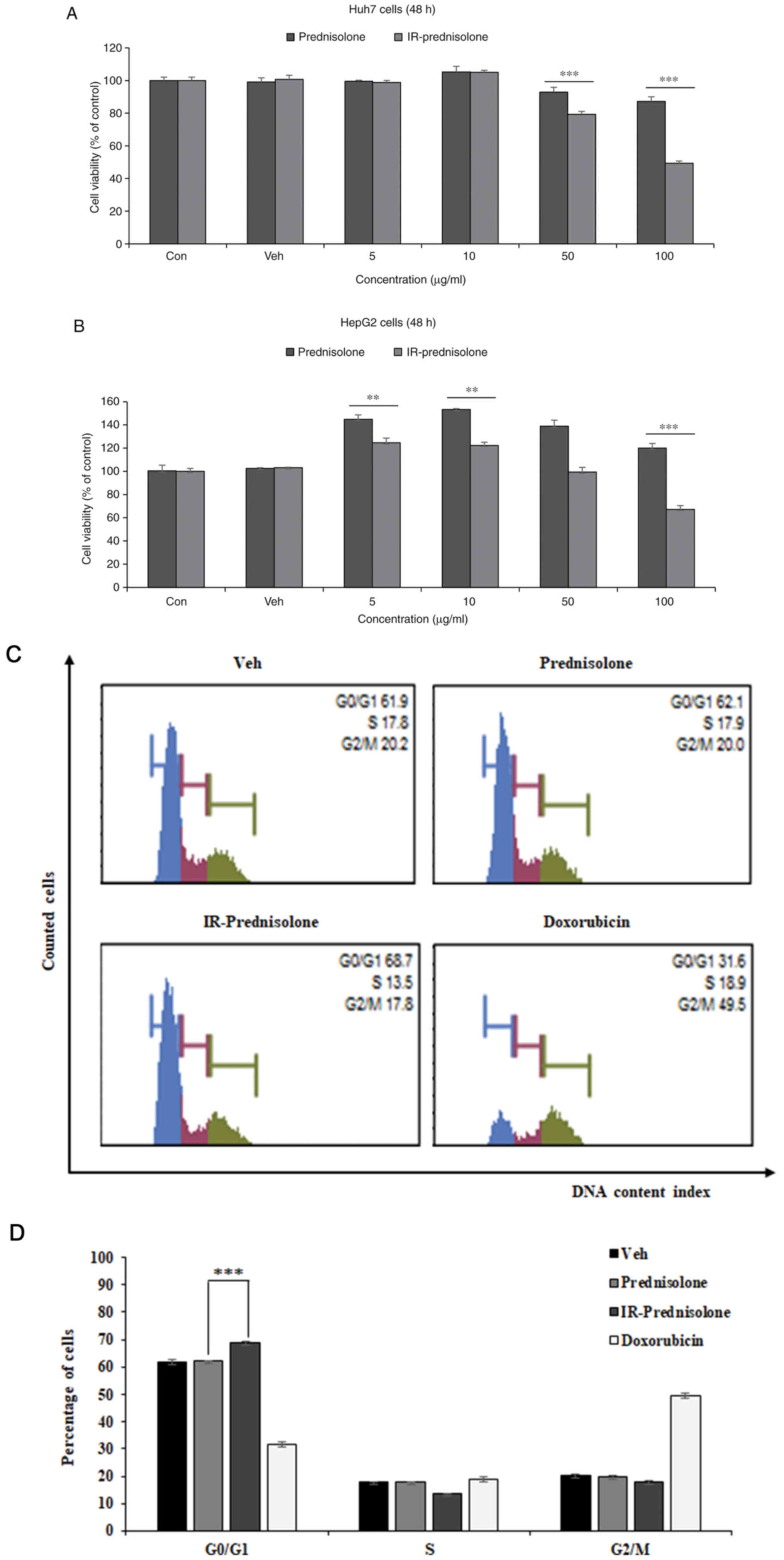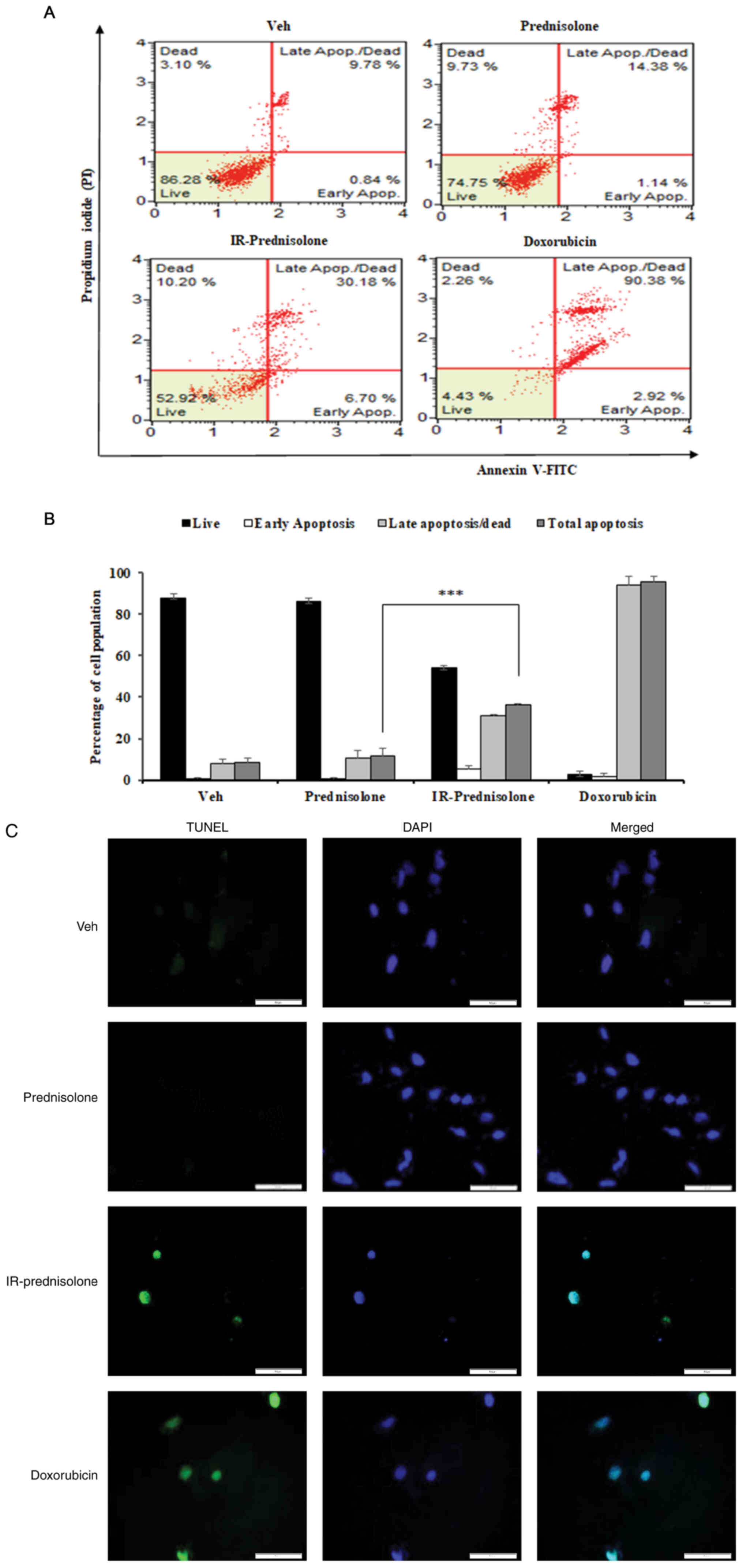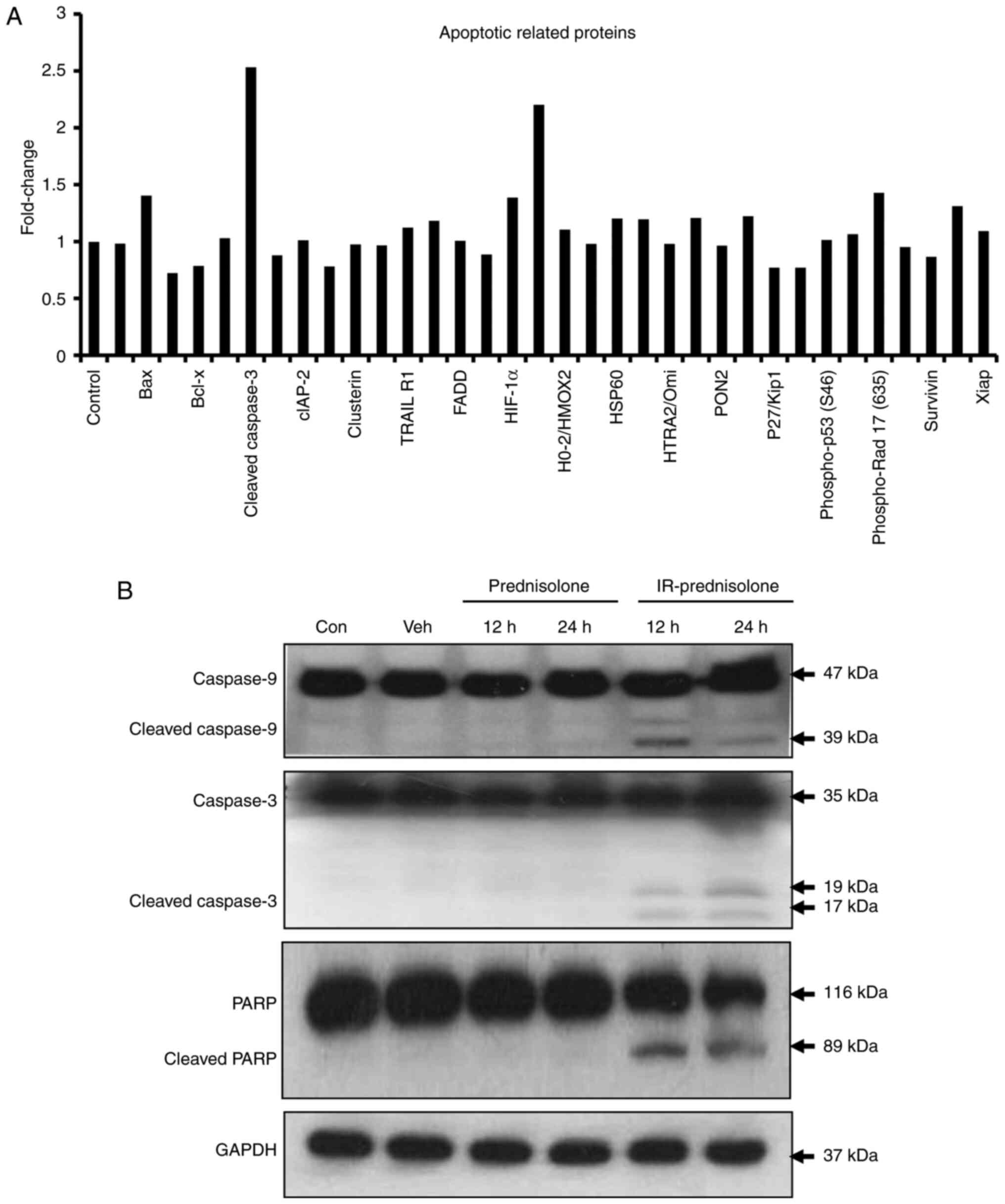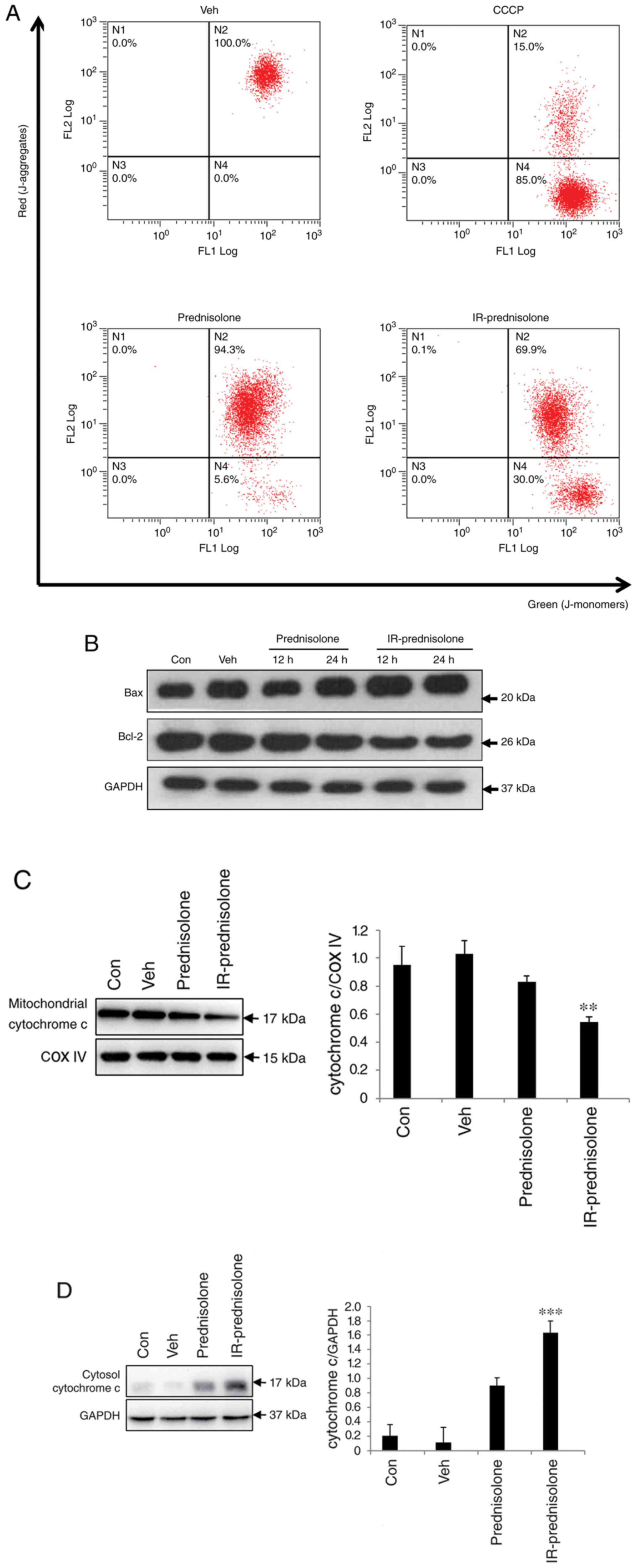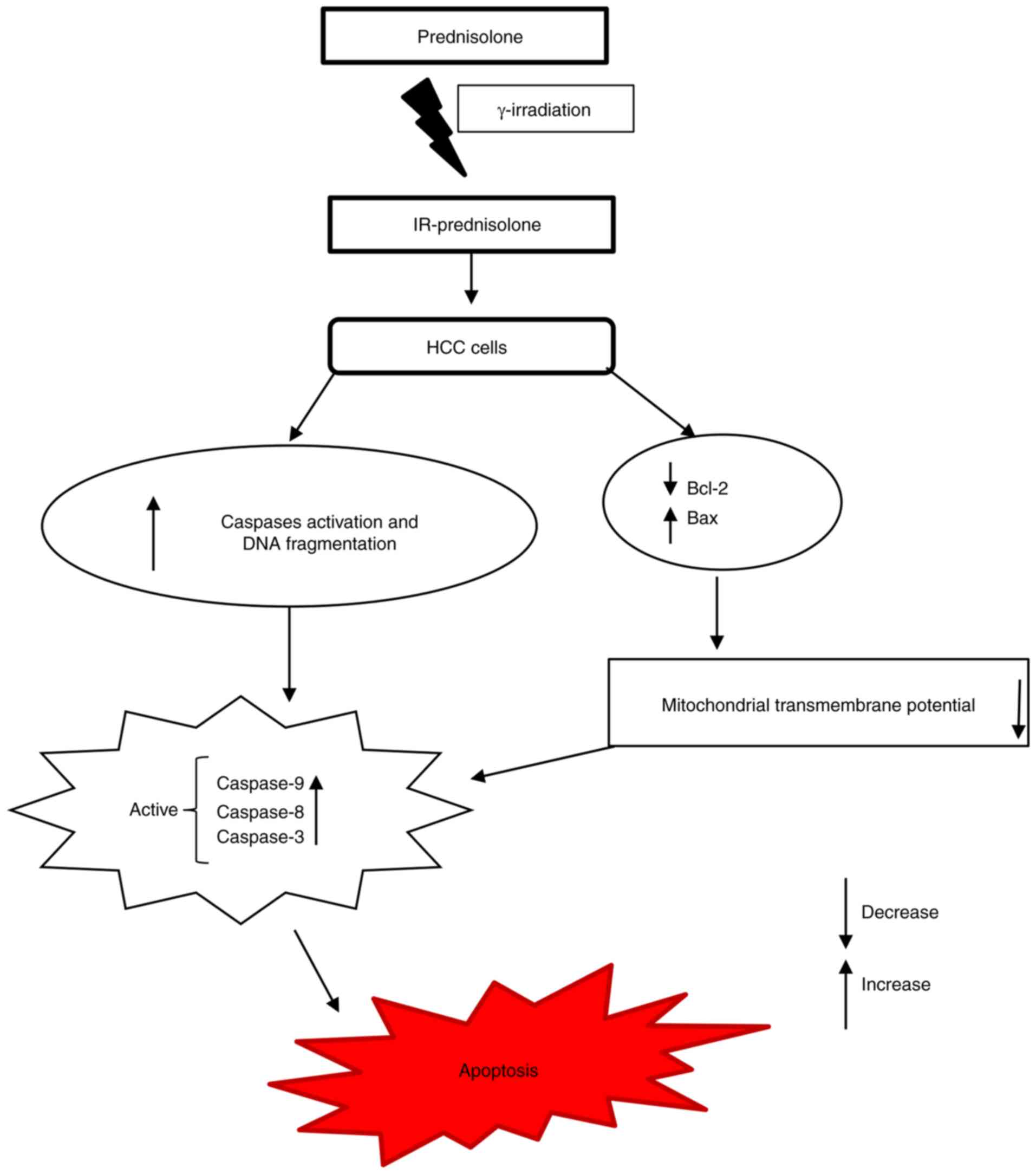|
1
|
Coleman RE: Glucocorticoids in cancer
therapy. Biotherapy. 4:37–44. 1992. View Article : Google Scholar : PubMed/NCBI
|
|
2
|
Twycross R: Corticosteroids in advanced
cancer. BMJ. 305:969–970. 1992. View Article : Google Scholar : PubMed/NCBI
|
|
3
|
Kofler R: The molecular basis of
glucocorticoid-induced apoptosis of lymphoblastic leukemia cells.
Histochem Cell Biol. 114:1–7. 2000. View Article : Google Scholar : PubMed/NCBI
|
|
4
|
Schlossmacher G, Stevens A and White A:
Glucocorticoid receptor-mediated apoptosis: Mechanisms of
resistance in cancer cells. J Endocrinol. 211:17–25. 2011.
View Article : Google Scholar : PubMed/NCBI
|
|
5
|
Smith LK and Cidlowski JA:
Glucocorticoid-induced apoptosis of healthy and malignant
lymphocytes. Prog Brain Res. 182:1–30. 2010. View Article : Google Scholar : PubMed/NCBI
|
|
6
|
Powell LW and Axelsen E: Corticosteroids
in liver disease: Studies on the biological conversion of
prednisone to prednisolone and plasma protein binding. Gut.
13:690–696. 1972. View Article : Google Scholar : PubMed/NCBI
|
|
7
|
Manabe A, Ohara A, Hasegawa D, Koh K,
Saito T, Kiyokawa N, Kikuchi A, Takahashi H, Ikuta K, Hayashi Y, et
al: Significance of the complete clearance of peripheral blasts
after 7 days of prednisolone treatment in children with acute
lymphoblastic leukemia: The Tokyo Children's cancer study group
study L99-15. Haematologica. 93:1155–1160. 2008. View Article : Google Scholar : PubMed/NCBI
|
|
8
|
Khanzadeh T, Hagh MF, Talebi M, Yousefi B,
Azimi A, Pour Feizi AAH and Baradaran B: Investigation of BAX and
BCL2 expression and apoptosis in a resveratrol-and
prednisolone-treated human T-ALL cell line, CCRF-CEM. Blood Res.
53:53–60. 2018. View Article : Google Scholar : PubMed/NCBI
|
|
9
|
Ganbarjeddi S, Azimi A, Zadi Heydarabad M,
Hemmatzadeh M, Mohammadi S, Ardehaie RM, Zamani M, Baharaghdam S,
Esmaeili S and Ghasemi A: Apoptosis induced by prednisolone occurs
without altering the promoter methylation of BAX and BCL-2 genes in
acute lymphoblastic leukemia cells CCRF-CEM. Asian Pac J Cancer
Prev. 21:523–529. 2020. View Article : Google Scholar : PubMed/NCBI
|
|
10
|
Noda S, Shioya M, Hira D, Fujiyama Y,
Morita SY and Terada T: Pharmacokinetic interaction between
sorafenib and prednisolone in a patient with hepatocellular
carcinoma. Cancer Chemother Pharmacol. 72:269–272. 2013. View Article : Google Scholar : PubMed/NCBI
|
|
11
|
Sundahl N, Clarisse D, Bracke M, Offner F,
Berghe WV and Beck IM: Selective glucocorticoid receptor-activating
adjuvant therapy in cancer treatments. Oncoscience. 3:188–202.
2016. View Article : Google Scholar : PubMed/NCBI
|
|
12
|
Volden PA and Conzen SD: The influence of
glucocorticoid signaling on tumor progression. Brain Behav Immun.
30 (Suppl):S26–S31. 2013. View Article : Google Scholar
|
|
13
|
Kim WS, Song HY, Mushtaq S, Kim JM, Byun
EH, Yuk JM and Byun EB: Therapeutic potential of gamma-irradiated
resveratrol in ulcerative colitis via the anti-inflammatory
activity and differentiation of tolerogenic dendritic cells. Cell
Physiol Biochem. 52:1117–1138. 2019. View Article : Google Scholar : PubMed/NCBI
|
|
14
|
Badaboina S, Bai HW, Na YH, Park CH, Kim
TH, Lee TH and Chung BY: Novel radiolytic rotenone derivative,
rotenoisin B with potent anti-carcinogenic activity in hepatic
cancer cells. Int J Mol Sci. 16:16806–16815. 2015. View Article : Google Scholar : PubMed/NCBI
|
|
15
|
Lee EH, Park CH, Choi HJ, Kawala RA, Bai
HW and Chung BY: Dexamethasone modified by gamma-irradiation as a
novel anticancer drug in human non-small cell lung cancer. PLoS
One. 13:e01943412018. View Article : Google Scholar : PubMed/NCBI
|
|
16
|
Kawala RA, Ramadhani FJ, Choi HJ, Lee EH,
Park CH, Chung BY and Bai HW: Kenalog modified by ionizing
radiation induces intrinsic apoptosis mediated by elevated levels
of reactive oxygen species in melanoma cancer. Oncol Rep.
41:1837–1850. 2019.PubMed/NCBI
|
|
17
|
Adams JM and Cory S: The Bcl-2 apoptotic
switch in cancer development and therapy. Oncogene. 26:1324–1337.
2007. View Article : Google Scholar : PubMed/NCBI
|
|
18
|
Martinou JC and Youle RJ: Mitochondria in
apoptosis: Bcl-2 family members and mitochondrial dynamics. Dev
Cell. 21:92–101. 2011. View Article : Google Scholar : PubMed/NCBI
|
|
19
|
Wolter KG, Hsu YT, Smith CL, Nechushtan A,
Xi XG and Youle RJ: Movement of Bax from the cytosol to
mitochondria during apoptosis. J Cell Biol. 139:1281–1292. 1997.
View Article : Google Scholar : PubMed/NCBI
|
|
20
|
Kitazumi I and Tsukahara M: Regulation of
DNA fragmentation: The role of caspases and phosphorylation. FEBS
J. 278:427–441. 2011. View Article : Google Scholar : PubMed/NCBI
|
|
21
|
Inaba H and Pui CH: Glucocorticoid use in
acute lymphoblastic leukaemia. Lancet Oncol. 11:1096–1106. 2010.
View Article : Google Scholar : PubMed/NCBI
|
|
22
|
Venkitaraman R, Lorente D, Murthy V,
Thomas K, Parker L, Ahiabor R, Dearnaley D, Huddart R, De Bono J
and Parker C: A randomised phase 2 trial of dexamethasone versus
prednisolone in castration-resistant prostate cancer. Eur Urol.
67:673–679. 2015. View Article : Google Scholar : PubMed/NCBI
|
|
23
|
Kataoka M, Anzai S, Shirasaki T, Ikemiyagi
H, Fujii T, Mabuchi K, Suzuki S, Yoshida M, Kawai T and Kitajima M:
Efficacy of short period, low dose oral prednisolone for the
prevention of stricture after circumferential endoscopic submucosal
dissection (ESD) for esophageal cancer. Endosc Int Open.
3:E113–E117. 2015.
|
|
24
|
Alshammari FM, Reda SM and Ghannam MM:
Potential effects of gamma irradiation on the stability and
therapeutic activity of anticancer drug, doxorubicin. J Radiat Res
Appl Sci. 10:103–109. 2017. View Article : Google Scholar
|
|
25
|
Bak DH, Kang SH, Park CH, Chung BY and Bai
HW: A novel radiolytic rotenone derivative, rotenoisin A, displays
potent anticarcinogenic activity in breast cancer cells. J Radiat
Res. 62:249–258. 2021. View Article : Google Scholar : PubMed/NCBI
|
|
26
|
Tharmarajah L, Samarakoon SR, Ediriweera
MK, Piyathilaka P, Tennekoon KH, Senathilake KS, Rajagopalan U,
Galhena PB and Thabrew I: In vitro anticancer effect of gedunin on
human teratocarcinomal (NTERA-2) cancer stem-like cells. Biomed Res
Int. 2017:24131972017. View Article : Google Scholar : PubMed/NCBI
|
|
27
|
Zheng SY, Li Y, Jiang D, Zhao J and Ge JF:
Anticancer effect and apoptosis induction by quercetin in the human
lung cancer cell line A-549. Mol Med Rep. 5:822–826.
2012.PubMed/NCBI
|
|
28
|
Samarghandian S and Shabestari MM: DNA
fragmentation and apoptosis induced by safranal in human prostate
cancer cell line. Indian J Urol. 29:177–183. 2013. View Article : Google Scholar : PubMed/NCBI
|
|
29
|
Varshney L and Dodke P: Radiation effect
studies on anticancer drugs, cyclophosphamide and doxorubicin for
radiation sterilization. Radiat Phys Chem. 71:1103–1111. 2004.
View Article : Google Scholar
|
|
30
|
Hengartner MO: The biochemistry of
apoptosis. Nature. 407:770–776. 2000. View
Article : Google Scholar : PubMed/NCBI
|















